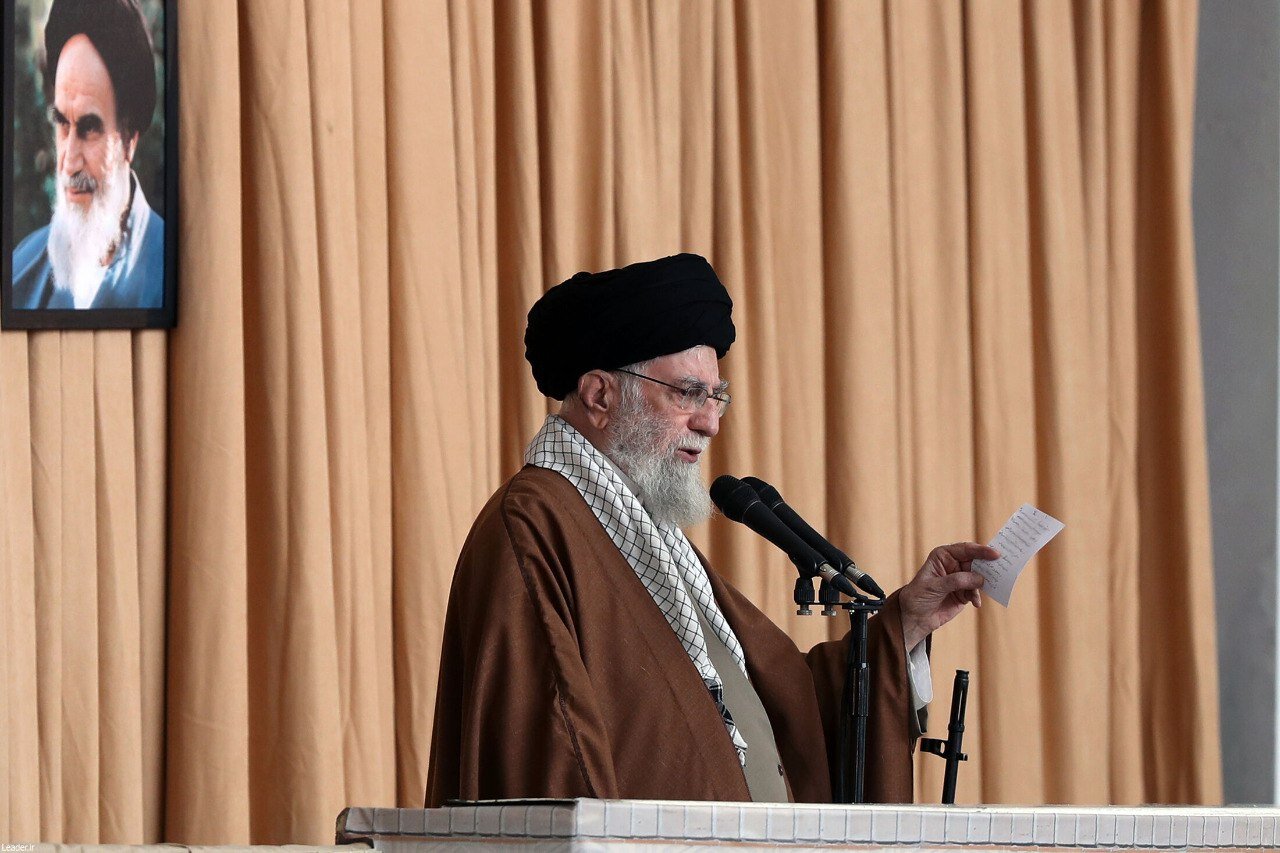Neither intimidated nor giving concessions
While standing firm against threats, Iran doesn’t reject indirect talks

TEHRAN – In recent weeks, the conflict between Iran and the United States has greatly escalated, with Iran’s peaceful nuclear program at the heart of the issue.
While Iran repeatedly affirms its dedication to the Non-Proliferation Treaty (NPT) and its sovereign entitlement to advance peaceful nuclear technology, the United States—under President Donald Trump—has returned to aggressive rhetoric and threats.
On March 9, 2025, Iran's Permanent Mission to the United Nations reiterated the nation's willingness for dialogue. Nevertheless, Iranian authorities emphasized that the country's inherent right to peaceful nuclear technology is non-negotiable.
This principled stance was reiterated by Foreign Ministry spokesperson Esmaeil Baqaei on the following day. Speaking to reporters in a weekly presser, Baqaei emphasized, “constructive negotiations must be grounded in mutual respect, not threats or coercive diplomacy.” Iran, he stressed, is willing to engage, but not under pressure.
Also, on March 31, immediately after Trump’s new threat, Baqaei warned, “Violence breeds violence, peace begets peace. The US can choose the course...; and concede to CONSEQUENCES.”
Escalation through US threats
Despite Iran’s measured approach, the U.S. has adopted an increasingly hostile tone. In a February 9 interview with an American media outlet, Donald Trump claimed he would seek a deal from Iran involving severe military concessions, warning that failure to comply would result in him "bombing the hell" out of the country.
On March 13, Trump sent a letter to the Leader of the Islamic Revolution Ayatollah Seyyed Ali Khamenei via an emissary from the United Arab Emirates.
Subsequently, during a March 31 NBC interview, Trump heightened his language once more, threatening to unleash bombings "the likes of which they have never witnessed before" if Iran declines to engage.
In a parallel show of force, the U.S. Air Force’s Global Strike Command confirmed the deployment of B-2 Spirit stealth bombers to the Diego Garcia base in the Indian Ocean, further escalating tensions.
Washington’s economic pressure campaign has also intensified, with sanctions aimed at crippling Iran’s oil exports. These sanctions are the continuation of the policy of “maximum pressure” initiated during Trump’s first term, when he unilaterally withdrew from the 2015 Joint Comprehensive Plan of Action (JCPOA), abandoning a multilateral agreement that Iran had fully honored.
Iran’s response: Defiance without provocation
While recognizing this message, Foreign Minister Abbas Araghchi emphasized that Iran would not yield to pressure. "Iran is receptive to indirect dialogue," he remarked, "but will not accept threats that compromise its sovereignty and dignity."
President Masoud Pezeshkian reiterated this viewpoint on March 30, emphasizing that direct discussions with the United States were not an option because of a deep-rooted mistrust arising from America's historical actions—especially its one-sided exit from the JCPOA. “Iran has never hindered the way of indirect talks,” he stated, “but we will not participate under pressure.”
In the meantime, the global community has expressed significant worry regarding Washington’s provocative position. On April 2, Russian Deputy Foreign Minister Sergei Ryabkov criticized Trump's threats as “unlawful and intolerable,” cautioning that any attack on Iran's nuclear sites might lead to extensive turmoil in the area.
Ryabkov also offered Russia’s assistance in mediating talks, urging both sides to adopt a mature, diplomatic approach. “This is a critical moment that calls for dialogue, not saber-rattling,” he insisted.
Also, the Guardian reported on March 31 that Arab states of the Persian Gulf are wary of U.S. military action against Iran, believing it would only deepen regional instability.
A doctrine of restraint
Frequently ignored in Western accounts is the religious belief system that shapes Iran's nuclear strategy. Ayatollah Khamenei has issued a binding fatwa forbidding the development or use of nuclear weapons, citing Islamic principles that reject weapons of mass destruction.
This position was reinforced by senior Ali Larijani, a senior aide to the Leader of the Islamic Revolution, on March 31. However, Larijani cautioned that if Iran is attacked under the false pretext of nuclear ambitions, it may be forced to reconsider its stance under public pressure.
Even the U.S. intelligence agencies have repeatedly acknowledged that Iran is not pursuing a nuclear weapon—casting doubts on the rationale for Washington’s assertive stance.
In response to escalating threats, Iran formally lodged a complaint with the United Nations Security Council on March 31. The grievance, presented by Iran’s UN Ambassador Saied Iravani, asserted that Trump's statements breach Article 2(4) of the UN Charter, which prohibits threatening or employing force against a sovereign state.
Tehran also summoned the acting head of the Swiss embassy, which takes care of the United States’ interests in Iran, to protest Washington’s threats. Iran also denounced the destabilizing role of the Zionist regime in the region, viewed as a collaborator in inciting turmoil.
In a special report on March 31, the Tehran Times disclosed that Iran's military has prepared missiles that can target US-associated sites, in light of the ongoing military threats from the United States. The report urged the White House to respond, with James Hewitt informing the Washington Free Beacon that Trump does not "take kindly" to what he characterized as "military threats".
On April 3, Trump claimed that Iran might be ready for direct negotiations, suggesting that intermediaries may no longer be necessary. However, Iran has not confirmed any change in its position.
The path forward: Dialogue, not domination
As the standoff continues, Iran remains committed to peace, stability, and dialogue—on the condition that such dialogue is based on mutual respect and international law.
Diplomacy, not domination, is the only viable path forward. The United States must now choose between escalating conflict or returning to the path of reason.
Iran’s message is clear: The doors are open to negotiation, but the nation’s dignity is not for sale.
Leave a Comment